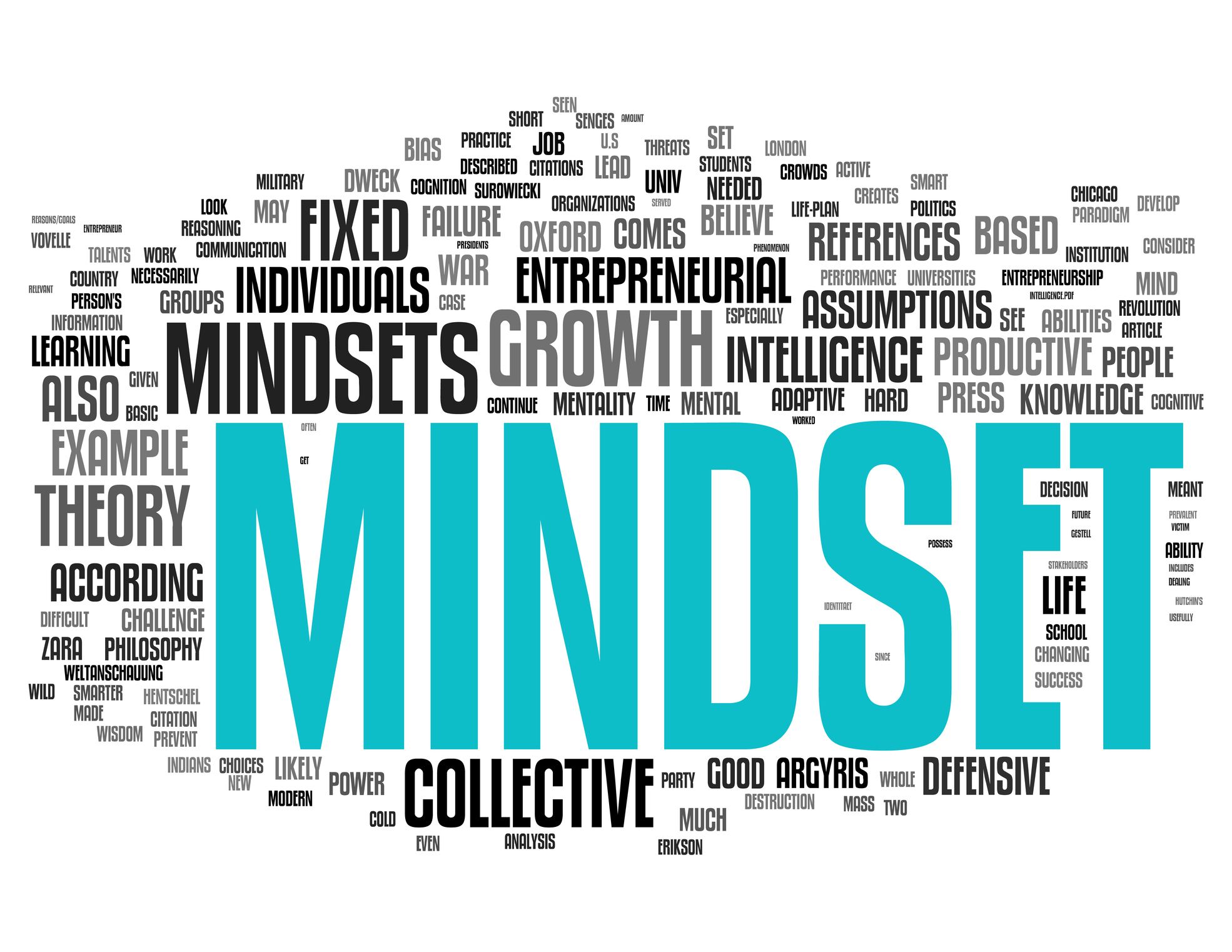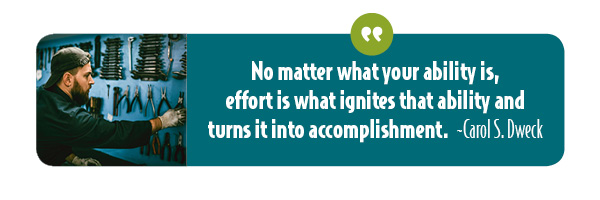Mindsets are like the story that many of us have heard multiple times: the two fighting wolves.
“A fight is going on inside me,” a man said to a boy. “It is a terrible fight and it is between two wolves. One is evil – he is anger, envy, sorrow, regret, greed, arrogance, self-pity, guilt, resentment, inferiority, lies, false pride, superiority, and ego.” He continued, “The other is good – he is joy, peace, love, hope, serenity, humility, kindness, benevolence, empathy, generosity, truth, compassion, and faith. The same fight is going on inside you – and inside every other person, too.”
The boy thought about it for a minute and then asked the man, “Which wolf will win?”
The man simply replied, “The one you feed.”
A less common but possibly even more relevant battle inside each of us is the fixed versus the growth mindset.
Estimated reading time: 4 minutes

Heartmanity is proud to partner with outstanding companies and products that we wholeheartedly recommend, so this post may contain affiliate links. As an Amazon Associate, I earn from qualifying purchases. You can read our full disclosure here.
You might think this dichotomy has the same outcome as the parable of the wolves. The answer, however, depends almost entirely on which mindset you personally hold.
Do you believe that the mindset you cultivate (feed) is the one that guides your life (wins)?
What Is a Fixed Mindset Versus a Growth Mindset?
A fixed mindset essentially assumes that our traits like intelligence, personality, creativity, and skills are static and a “given.” A growth mindset, on the other hand, believes that these things can and do change throughout the course of human life.
As Stanford psychologist Carol Dweck explains in her book Mindset: The New Psychology of Success—people with a fixed mindset think that we humans can’t change things like our skill level or intelligence in any real way, while people with a growth mindset see skill and intelligence as ever-changing and malleable.
If you’re a visual learner, this video illustrates the two mindsets in an easy-to-follow way.
How Fixed and Growth Mindsets Respond to Challenges
Whether you subscribe to a fixed or growth mindset is not situational. Your outlook applies in all situations, times, places, and relationships.
So, why does the distinction between fixed and growth mindsets especially matter in a challenging situation? That is one place where our mindset tends to express itself very clearly.
In a fixed mindset, success proves your inherent talent and ability, while struggles affirm your natural pitfalls and weaknesses. In this view, you can work for success and against struggles, but your abilities are ultimately fixed, and you cannot really change the outcome.
People with a fixed mindset often seek success and avoid failures. After all, if you fail there’s nothing you can do about it, learn from it, or change yourself to avoid that failure in the future.
In a growth mindset, success is not necessarily indicative of inherent talent, and neither is failure-proof of inbred weakness. Instead, challenges and failures give you information on how to change, improve and grow. Success does not mean you will always succeed, even in those same circumstances again...but neither does failure.
In short, a growth mindset never stops trying.
Related reading: "Learn How You Can Develop a Growth Mindset."
5 Practical Tips to Cultivate a Growth Mindset
Developing a growth mindset can transform how you approach life and its myriad challenges. Here are some practical strategies to get started:
 View Challenges as Learning Opportunities
View Challenges as Learning Opportunities
Instead of perceiving obstacles as roadblocks, see them as opportunities to learn and grow. Start by tackling smaller challenges. As you gain confidence, take on larger ones, building resilience along the way.
 Focus on Effort, Not Just the End Result
Focus on Effort, Not Just the End Result
Place value on the journey rather than just the destination. Acknowledge the consistent effort you exert, as it plays a critical role in achieving mastery. Celebrate small victories and incremental progress as crucial components of reaching bigger goals.
 Stay Naturally Curious
Stay Naturally Curious
Maintain a genuine curiosity and eagerness to learn. Dive into new topics, attend workshops, or engage with thought leaders in your field. Remaining open to novel ideas fosters continual growth and adaptability.
 Seek Learning Over Approval
Seek Learning Over Approval
Shift your mindset to prioritize learning from each experience instead of seeking validation from others. This approach diminishes the fear of judgment, empowering you to pursue more ambitious and innovative endeavors.
 Build a Network of Like-Minded Individuals
Build a Network of Like-Minded Individuals
Surround yourself with individuals who embody a growth mindset. By connecting with mentors, peers, and collaborators who challenge you, you can model their attitudes and behaviors to accelerate your personal development. These interactions encourage continuous growth and provide support on your journey.
Mindset is not absolute.
It’s important to note that while these mindsets are very different, this is not a completely black-and-white issue.
A fixed mindset doesn't mean you believe that nothing about you will ever change. A growth mindset does not mean that you can build yourself from scratch into anything you want.
As Dweck writes in Mindset: The New Psychology of Success:
Do people with this mindset believe that anyone can be anything, that anyone with proper motivation or education can become Einstein or Beethoven? No, but they believe that a person’s true potential is unknown (and unknowable); that it’s impossible to foresee what can be accomplished with years of passion, toil, and training.

Why Mindset Makes a Difference in Your Life
“For twenty years, my research has shown that the view you adopt for yourself profoundly affects the way you lead your life,” writes Dweck.
She goes on: “It can determine whether you become the person you want to be and whether you accomplish the things you value.” This fact makes it imperative that parents know how to cultivate a growth mindset in their children and for leaders to encourage it in their teams.
One of the most powerful ways that mindset impacts your daily life is in how you approach challenges. As we mentioned above, fixed and growth mindsets have very different views of adversity and struggle. In professional lives, personal relationships, work, and play—how we react to problems (or perceived problems) make up a majority of our internal and external dialogue.
Related reading: "5 Simple Principles People with Growth Mindset Use to Respond to Challenges."
 As Dweck says, people adopt a mindset for themselves. This normally happens at an early age. Throughout their lives, people then operate based on their mindset when they encounter everything from struggles with children, dating squabbles, workplace miscommunications, and difficulty in school.
As Dweck says, people adopt a mindset for themselves. This normally happens at an early age. Throughout their lives, people then operate based on their mindset when they encounter everything from struggles with children, dating squabbles, workplace miscommunications, and difficulty in school.
Depending on your mindset, you tend to live with either “a passion for learning” or “a hunger for approval,” as author Maria Popova put it. Our personal growth springs from mindset, she says, and “ultimately our capacity for happiness.”
Companies can benefit from growth mindsets, too, if they are mindful about implementing their beliefs into their business culture.
How Surrounding Yourself with Growth-Minded People Can Transform Your Mindset
Surrounding yourself with individuals who embody a growth mindset can significantly influence your own perspective. When you're in an environment filled with peers, mentors, and collaborators who focus on personal development, their positive attitudes and proactive behaviors will naturally inspire you to cultivate similar habits.
-
Learning from Role Models: Interacting with people who consistently strive for improvement offers you a wealth of behaviors to observe and emulate. Their experiences and strategies provide valuable insights into overcoming challenges and seizing opportunities.
-
Encouragement and Support: Being in a network that encourages continual growth helps you stay motivated. These individuals challenge your thinking, offer constructive feedback, and celebrate your successes, which can make evert day more rewarding and less isolating.
-
Accelerated Development: When you are part of a supportive community, your self-development often speeds up. The exchange of ideas, resources, and encouragement can propel your progress faster than if you were pursuing growth alone.
And it's a lot more fun, too! -
Adaptability to Change: Engaging with growth-oriented individuals enhances your ability to adapt. Their openness to learning new things and overcoming obstacles equips you with the resilience and flexibility needed to thrive in a rapidly changing world.
By choosing to surround yourself with those who are committed to growing, you lay the foundation for significant personal transformation. This positive influence broadens your perspective, enriches your knowledge, and empowers you to reach your full potential.
One important question to ask yourself about your mindset.
Let’s revisit the story about the wolves. Do you believe that the wolf who is naturally stronger, smarter, and more agile should win or that the right preparation matters as much as natural ability?
Since Carol Dweck began her research in the early 1970s, the ideas of fixed and growth mindset have spread and become more overt in personal and professional life. Companies like GE and Chrysler are discussing the mindset of their companies and CEOs.
The question for each of us becomes:
Are you choosing to see struggles as opportunities for learning and growth or as a judgment of your innate ability?
Here at Heartmanity, we highly value Emotional Intelligence. We also believe in the potential of creating thriving relationships so ask yourself: "How does your mindset affect the way you treat others?"
For a greater understanding of the fixed and growth mindset or to cultivate emotional fitness, contact us today at Heartmanity.








